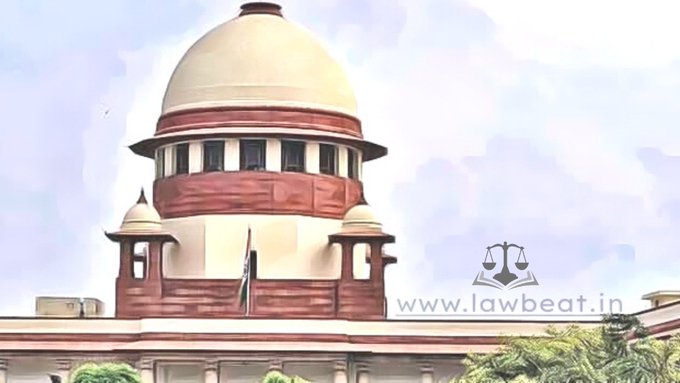'Excessive bail is no bail': SC allows man to use same sureties in multiple cases

Dealing with a writ petition filed by a person who faced 13 FIRs in multiple States, the bench noted that the petitioner was experiencing genuine difficulty in finding multiple sureties
The Supreme Court on August 22, 2024, allowed a plea by a man to use his sureties furnished in one case for bail, in all other cases pending against him, as it emphasised the need to balance the requirement of furnishing the sureties in multiple cases faced by the man with his fundamental right of liberty under Article 21 of the Constitution.
"From time immemorial, the principle has been that the excessive bail is no bail. To grant bail and thereafter to impose excessive and onerous conditions, is to take away with the left hand, what is given with the right. As to what is excessive will depend on the facts and circumstances of each case," a bench of Justices B R Gavai and K V Vishwanathan said.
Dealing with a writ petition filed by one Girish Gandhi, who faced 13 FIRs related to cheating and other offences in multiple States, the bench noted that the petitioner was experiencing a genuine difficulty in finding multiple sureties.
In his plea, the petitioner contended that he was not in a position to furnish separate sureties, as directed in the remaining 11 bail orders. He sought a direction for treating the sureties already furnished in two cases in such a manner as to ensure the benefit in all the other eleven cases.
His counsel said that even though in the cases concerned, the bail had been ordered, the petitioner was still in custody because he was unable to furnish sureties.
Various State governments opposed the plea contending that for each crime number, a separate surety is required and a particular surety cannot be made liable to pay the amount in excess of the amount of bond that the surety has furnished. They submitted, the bond of one surety cannot be mixed up with the bond executed or to be executed in other cases against different crime numbers.
Having referred to Section 441 of the CrPC which dealt with bonds and sureties, the bench said, "Sureties are essential to ensure the presence of the accused, released on bail. At the same time, where the court is faced with the situation where the accused enlarged on bail is unable to find sureties, as ordered, in multiple cases, there is also a need to balance the requirement of furnishing the sureties with his or her fundamental rights under Article 21 of the Constitution of India."
The court felt an order which would protect the person’s fundamental right under Article 21 and at the same time guarantee the presence, would be reasonable and proportionate.
"As to what such an order should be, will again depend on the facts and circumstances of each case," the bench said.
Reflecting upon the ground situation, the bench also noted that whether it is to get individuals to stand as a guarantor for a loan transaction or as a surety in a criminal proceeding, the choice for a person is very limited.
"It will very often be a close relative or a longtime friend. In a criminal proceeding, the circle may get even more narrowed as the normal tendency is to not disclose about the said criminal proceeding to relatives and friends, to protect one’s reputation. These are hard realities of life in our country and as a court of law we cannot shut our eyes to them. A solution, however, has to be found strictly within the framework of the law," the bench said.
In the case at hand, the bench noted that the situation at present was that despite obtaining bail in 13 cases, the petitioner had not been able to furnish sureties. However, there were two cases where bail had not been granted, it pointed out.
The bench, accordingly, ordered that for the FIRs pending the States of Uttar Pradesh, Rajasthan, Punjab and Uttarakhand, in each State, the petitioner will furnish his personal bond for Rs 50,000 and furnish two sureties who would execute the bond for Rs 30,000 each which shall hold good for all FIRs in the concerned State.
"The same set of sureties is permitted to stand as surety in all the States. We feel that this direction will meet the ends of justice and will be proportionate and reasonable," the bench said.
Case Title: Girish Gandhi Vs The State of Uttar Pradesh & Ors
